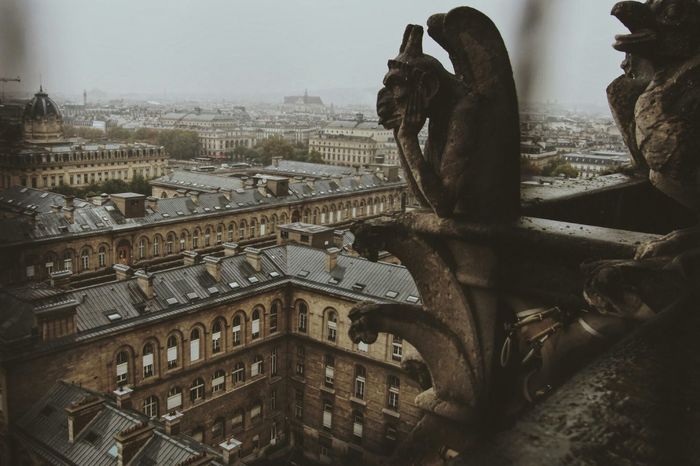Are ‘core’ aesthetics promoting consumerism?
TikTok and the ‘cores’ trends may be promoting overconsumption and the typification of women rather than feminism, argues Gina Stock

It has been a long time since I’ve had TikTok but, despite deleting the app, I still find myself getting sucked into Instagram reels instead. While the content I consume is admittedly around a month behind, it is still apparent that these short video apps are having a profoundly negative impact on our sense of self – particularly in relation to our fashion sense.
“Everyone knows that fashion is cyclical and TikTok is the perfect medium to exacerbate that cycle”
Numerous “clean girl” videos fill my screen, encouraging me to use detox powder, try pilates and attempt a slick-back bun when my hair is greasy. I’m then hit with the “mob wife” aesthetic, which requires furs, gold jewellery and a killer red lip… Then, “cottagecore” comes along, enticing me to purchase sweetheart-neckline florals and ethereal jewellery… Then “coquette”, then “Barbiecore”, then “old money”, “ballet core”, “baddie”, “tomato-girl summer”… And I’m soon overwhelmed by choice and no closer to finding individuality or satisfaction in fashion.
Everyone knows that fashion is cyclical and TikTok is the perfect medium to exacerbate that cycle. An endless stream of content in short, digestible bursts means the cycles that have always existed in fashion can be shortened, promoting excess consumption and resulting in attempts to keep up with the newest “type” of female fashion and lifestyle. And it is the very concept of “types” that is stifling individuality in fashion and narrowing standards of beauty; to go viral on TikTok as a fashion influencer, conforming to a certain “type” or labelling your style as a “core” makes it reproducible, standardised and easier to digest. Instead of searching for specific garments, just type an aesthetic into the search bar and become instantly fashionable.
“Constantly shifting from one aesthetic to another can create a sense of inadequacy”
Not to mention some of the “types” and “cores” are inherently problematic – “mob wife” is a style that promotes blind faith in criminal men; “clean girl” sits in a dichotomy where the style appears effortless and minimal, while, behind the scenes, it promotes 15-step skincare routines and expensive organic food; “coquette” aesthetics emphasise submissive charm and self-objectification in a hyper-feminine manner, revealing but chaste. TikTok is extremely educational too and I’m sure many would argue that conforming to one of these apparently anti-feminist aesthetics is a feminist action in itself – an act of “reclaiming”. However, there is no guarantee that their ever-younger audiences are consciously engaging with this feminist angle to microtrends. Furthermore, the speed with which these trends go in and out of fashion on TikTok renders the act of “reclaiming” useless, as women are being encouraged to continue to style themselves in a restrictive way and keep up with consumption at a crazy rate. To me, this isn’t feminist at all.
You could argue that TikTok has made all these styles and types accessible to a much wider audience. This is true. But it is encouraging an entirely new generation of girls with access to TikTok and Instagram to fit into a predetermined mould. It is teaching behavioural cycles of overconsumption while young women and girls attempt to shape their fashion according to a catalogue of self-proclaimed fashionable aesthetics. It leaves no room for personal taste or convergence of aesthetics. Constantly shifting from one aesthetic to another can create a sense of inadequacy and perpetual feelings of not being “enough”, not being able to follow along with the next aesthetic or keep up with the latest trends. TikTok is damaging in many ways but its interaction with fashion in particular can put pressure on girls to fit in moulds; it overshadows the joy of self-expression and personal style.
Let’s shake the typification of female fashion and embrace individuality and authenticity of taste in fashion. Fashion should be about celebrating diversity, individual style and finding fulfilment in curating authentic outfits, not attempting to fit in boxes. The democratisation of fashion through TikTok and related apps has ironically imposed new limitations on women’s fashion and is manipulating women into a life of overconsumption.
 News / Cambridge student numbers fall amid nationwide decline14 April 2025
News / Cambridge student numbers fall amid nationwide decline14 April 2025 News / Greenwich House occupiers miss deadline to respond to University legal action15 April 2025
News / Greenwich House occupiers miss deadline to respond to University legal action15 April 2025 Comment / The Cambridge workload prioritises quantity over quality 16 April 2025
Comment / The Cambridge workload prioritises quantity over quality 16 April 2025 Sport / Cambridge celebrate clean sweep at Boat Race 202514 April 2025
Sport / Cambridge celebrate clean sweep at Boat Race 202514 April 2025 Features / The TikTok college: using social media in access and outreach15 April 2025
Features / The TikTok college: using social media in access and outreach15 April 2025






